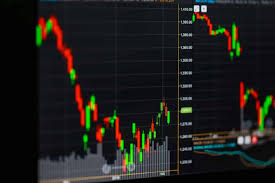Currently Empty: NT$0

The Meaning of Forex Trading: A Comprehensive Guide
Forex trading, also known as foreign exchange trading, is the act of buying and selling currencies on the foreign exchange market. This market is one of the largest and most liquid financial markets in the world, facilitating trillions of dollars in trades every day. The primary purpose of forex trading is to exchange currencies for various reasons, including commerce, tourism, and investment. For traders, it’s a way to speculate on the price movements of currency pairs, aiming to profit from fluctuations in exchange rates. If you are new to forex trading, you can also explore forex trading meaning Argentina Brokers to find suitable platforms that cater to traders in that region.
Understanding Forex Trading
At its core, forex trading involves the simultaneous buying of one currency and selling of another. Currencies are traded in pairs, such as EUR/USD, where the euro is the base currency and the US dollar is the quote currency. The price of a currency pair represents how much of the quote currency is needed to purchase one unit of the base currency. For example, if the EUR/USD is quoted at 1.20, it means you need 1.20 US dollars to buy one euro.
The forex market operates 24 hours a day during weekdays, which allows traders to engage in trading at any time. The market is decentralized and exists across multiple platforms and locations around the globe, making it accessible to millions of traders worldwide.
The Importance of Forex Trading
Forex trading plays a critical role in the global economy. It enables international trade and investment by facilitating the conversion of currencies, allowing businesses and individuals to make transactions in various currencies. For example, a company importing goods from another country must convert its local currency into the supplier’s currency to complete the transaction.

Furthermore, forex trading provides businesses and investors with a mechanism to hedge against currency fluctuations. By using different financial instruments, traders can protect themselves from adverse movements in exchange rates that could affect their profit margins or investment returns.
Getting Started in Forex Trading
If you’re looking to start forex trading, here are some essential steps to follow:
- Educate Yourself: Before diving into trading, it’s crucial to understand the basics of forex markets, trading strategies, and risk management.
- Choose a Broker: Selecting the right forex broker is vital. Look for one that is regulated, has a good reputation, and offers competitive trading conditions.
- Open a Trading Account: After choosing a broker, open a trading account. Most brokers offer demo accounts to practice trading before using real money.
- Develop a Trading Plan: Create a trading plan outlining your trading goals, strategies, risk tolerance, and money management rules.
- Start Trading: Once you’re comfortable with your education and practice, you can begin trading with real funds.
Forex Trading Strategies
There are various strategies traders use in the forex market. Here are a few popular ones:
1. Day Trading
Day trading involves making multiple trades within a single day to capitalize on short-term price movements. Day traders typically close all positions before the market closes to avoid overnight risk.
2. Swing Trading

Swing trading entails holding positions for several days or weeks, aiming to profit from expected price swings. Swing traders often use technical analysis to identify entry and exit points.
3. Scalping
Scalping is a strategy that focuses on making small, quick profits from numerous trades throughout the day. Scalpers aim to exploit minor price changes in highly liquid currency pairs.
Risks in Forex Trading
While forex trading offers significant profit potential, it also comes with considerable risks. Here are some risks to consider:
- Market Risk: This refers to the possibility of losing money due to unfavorable price movements in a currency pair.
- Leverage Risk: Forex trading often involves using leverage, which can amplify both gains and losses. High leverage can lead to significant losses exceeding your initial investment.
- Liquidity Risk: In some market conditions, you may have difficulty buying or selling a currency pair at your target price, especially during high volatility.
Conclusion
Forex trading is a dynamic and complex market that attracts both novice and experienced traders. Understanding its meaning, significance, and operational mechanics is essential for anyone looking to engage in this form of trading. By educating yourself, choosing the right broker, and developing a solid trading strategy, you can navigate the forex market successfully. Remember to manage your risks wisely and continue learning as you grow in your trading journey.
